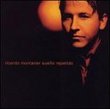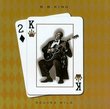| All Artists: Pyotr Il'yich Tchaikovsky, George Szell, Herbert von Karajan, London Symphony Orchestra, Vienna Philharmonic Orchestra Title: Tchikovsky: Symphony 4/Romeo & Juliet Members Wishing: 0 Total Copies: 0 Label: Decca Release Date: 10/26/1999 Genre: Classical Styles: Historical Periods, Modern, 20th, & 21st Century, Symphonies Number of Discs: 1 SwapaCD Credits: 1 UPC: 028946065525 |
Search - Pyotr Il'yich Tchaikovsky, George Szell, Herbert von Karajan :: Tchikovsky: Symphony 4/Romeo & Juliet
 | Pyotr Il'yich Tchaikovsky, George Szell, Herbert von Karajan Tchikovsky: Symphony 4/Romeo & Juliet Genre: Classical
|
Larger Image |
CD DetailsSimilar CDs
Similarly Requested CDs |
CD ReviewsA Ferocious Fourth Aaron Lee Faire | Japan | 03/19/2000 (4 out of 5 stars) "George Szell's LSO version of Tchaikovsky's Fourth Symphony is one of my favourites. The recording, playing and interpretation are excellent. The LSO of the 1960s was a great ensemble and it's nice to hear them sound so fine sonically and artistically. George Szell brings his customary professionalism and intensity to the recording. The finale of the symphony is awe inspiring - such passion and ferocity. Hearing musicians playing at the brink as in this recording gave me goose pimples and a silly grin. In summation Szell's Tchaikovsky Four has power, passion, precision and intellect. An all too rare quartet these days." Driven intensity, and legitimately so L. C. Gasper | 09/08/2007 (5 out of 5 stars) "David Zinman (when he was conductor of the Baltimore Symphony - he now conducts the Zurich Tonhalle Orchestra) said he loved Tchaikovsky because "he will bear any interpretation." George Szell in this recording took interpretation of Tchaikovsky's fourth perhaps as far as it can go in the direction of driven intensity. Unremitting, hair-raising, furious, edge-of-your-seat - the list of apt descriptive adjectives is long. It is not the only interpretation one can put on the score, and there are certainly other fine recordings (a very good one: Tchaikovsky: Symphony no. 4 Antal Dorati leading also the LSO, a year earlier than Szell's recording). But if you like Tchaikovsky white-hot, this is the still the standard, even after nearly half a century. The "filler" on this album, von Karajan's reading of Romeo and Juliet, with the Vienna Philharmonic, offers another interpretation of Tchaikovsky: Lush, opulent, and insistent. It isn't white-hot, but it is muscular. You may detect some tape hiss in these older recordings, but the engineering puts many much more recent efforts to shame, and the music in any event is likely to sweep you past such minor considerations. I have to speak to the notion that this recording of Tchaikovsky's fourth is in some strange way illegitimate or invalid because George Szell didn't want it released, having been somehow misled into the way he conducted it by Producer John Culshaw's deliberately lowering the volume on first playback. That lowering of the volume - notice, only on first playback - is less than half the whole story. Szell had rehearsed the fourth for some days, and on the night before the recording had conducted it in concert. His fury was due to his discovery at the opening of the recording session that many of the players he had been working with for those days had decided for the recording to send their deputies instead, which the players' contract allowed at that time. The recording session was, not surprisingly, very trying, as Szell had to work at largely rebuilding in hours what he had with substantial effort put together over several days. The situation was not helped by the recalcitrance of the understudies, who did not respond well to Szell's - shall we say - pointed criticisms and demands. We can fault John Culshaw for throwing gasoline on this fire but, beyond question, it was already blazing high. As against that, it is true that the result was not good enough for Szell who, provoked by a mild and off-hand statement when the session was over that the disc would be on the market by a certain date, responded coldly with the phrase "Over my dead body!" That was not, however, because he considered, as some have imagined, that he had been driven into some rash conducting. So far as I know, Szell never said why he refused to allow the release (which appeared nine years later, in 1971, in the year after Szell died, not, as another reviewer has it, 15 years after his death). What is sure is that Szell, and apparently Culshaw, too, considered that the understudies to the end resisted playing as well as Szell thought they could have. It is said that there is a notable fault by the clarinet in the first movement which Szell just could not get corrected, and he was such a precisionist that one can understand how that fault, coming on top of everything else that day, might have caused him to turn his back on what he may have thought a disciplinary and organizational fiasco but not a musical failure. I noticed, too, a very obvious tape splice in the second movement that I find surprising in a John Culshaw production. Szell was a perfectionist and it makes complete sense that these flaws would be unacceptable, but there is no evidence that Szell thought the overall interpretation was faulty or somehow illegitimate because not really his. In the end, the work itself counts for everything. Pace the Maestro himself, this interpretation overwhelms any flaws that remain." My Favorite Tchaik 4 Darryl Roberson | Dallas, Texas | 02/04/2000 (5 out of 5 stars) "When a popular work is successfully recorded many times over, it goes without saying that many favorite recommendations may be given, all legitimate. This recording of the Tchaik 4 is my very favorite. True the LSO, a great orchestra in it's own right, may not consistently have had the knife-edged precision of Szell's own Cleveland ensemble. Forget that for now; the playing here is spectacular!Many will know the story behind this recording about how the sound engineer purposely kept the controls lowered during playback, infuriating Dr. Szell over the apparent insipidity, and prompting him on the subsequent take to draw playing of extraordinary vigor. For some reason I have yet to learn, the conductor did not wish to have this recording released during his lifetime. But now, hear it is, in all its glory. You shouldn't hesitate to acquire this fabulous collaboration."
|

 Track Listings (5) - Disc #1
Track Listings (5) - Disc #1




